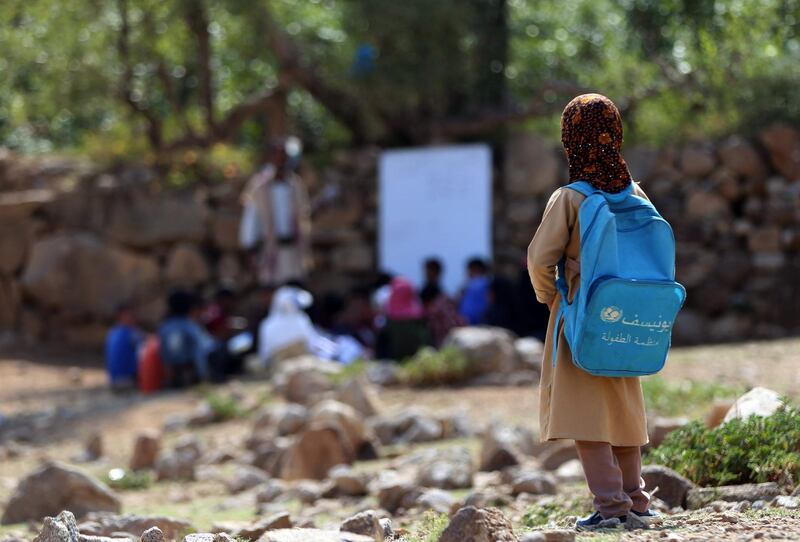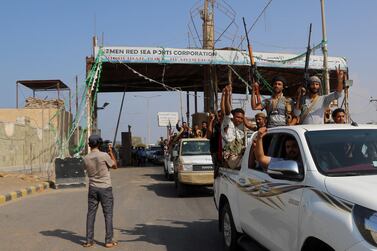Yemen’s Houthi rebels have started charging school fees in areas under their control, depriving children of an education and putting them at greater risk of exploitation and violence, according to government officials.
In Sanaa, the Houthis are demanding up to 1,150 Yemeni rials [Dh17] in registration fees and a monthly charge of 1,000 rials, said Hooria Mashhour, Yemen’s former minister of human rights.
Education in Yemen is free and open to all children from the ages of 6 to 15 in government-funded schools.
"According to my sources in Sanaa, the Houthis are justifying their demands for these fees by stating that it will be paid towards the transport and allowance for volunteer teachers," Ms Mashhour told The National.
The charges are the “main reasons why children drop out of schools”, because their families cannot afford to pay them, she said.
“A Yemeni family consists of at least seven to eight members," Ms Masshour said. "These fees are too high to allow them an education."
The quality of education in Yemen has deteriorated dramatically throughout the country and especially in Houthi-held areas, she said.
In other Houthi-controlled areas, such as the southern province of Ibb, the rebels are demanding that "well off" families pay 1,000 rials a month, Saeed Al Batati, a Yemeni journalist, told The National.
The school fees could go up to 5,000 rials for every student enrolled, according to Afrah Nasser, another Yemeni journalist.
"Sources say that Houthi rebels are charging 1,500 riyals for registration fees and the 5,000 riyals can be paid in instalments," Nasser told The National.
More than half of Yemen's teachers have not received their salaries for years, affecting 10,000 schools, a source at the Norwegian Refugee Council told The National.
“Support for teacher salaries is the most critical and urgent need for the coming school year,” the source said.
About 2,000 schools have been damaged, destroyed, inhabited by displaced families or occupied by armed groups since the start of the war, she said.
Further delays in paying teachers will probably lead to the collapse of the education sector and affect millions of children in Yemen.
It will leave them vulnerable to child labour, recruitment, trafficking, abuse and early marriage, the council said.
It said almost 4.7 million boys and girls needed educational assistance across Yemen.
The UN children’s agency on Wednesday said that two million children were out of school in the country.
The education of a further 3.7 million children was at risk as teachers' salaries have not been paid in more than two years, Unicef said.
"Violence, displacement and attacks on schools are preventing many children from accessing school," said Sara Nyanti, Unicef's Yemen representative.
The agency said one in five schools in the country could no longer be used as a result of the Houthi insurgency.
"Children out of school face increased risks of all forms of exploitation, including being forced to join the fighting, child labour and early marriage," Ms Nyanti said.
"They lose the opportunity to develop and grow in a caring and stimulating environment, ultimately becoming trapped in a life of poverty and hardship."
The conflict that began after the Iran-aligned rebels captured the capital, Sanaa, in 2014 has killed tens of thousands of people and left millions on the brink of famine, according to the UN.







